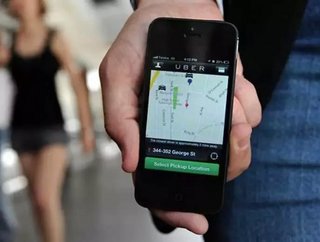3 Lessons the Health Care Industry Can Learn from Uber

Uber has been clouding headlines as of late, due to the drastic changes it has brought to the taxi industry. With major cities flocking to the app for its lower prices and convenience, Uber is significantly changing the market.
We’ve written about how startups like Uber are taking the health care industry from a business to consumer model, but we haven’t discussed what lessons companies such as Uber can teach the industry directly.
Therefore, here are three key lessons health care can take from Uber.
1. Value customer service.
While there are certainly exemplary taxi drivers out there, most drivers treat riders rudely or don’t even bother to pick them up if they believe they are going somewhere they don’t want to go (for example, the airport). There are also taxi drivers who smoke, talk on cell phones and just don’t bother taking a rider into consideration.
[READ MORE] The Uber-fication of Health Care: From a Business to Consumer Model
With Uber, riders can hail a ride easily, track its location and receive great service.
For most individuals, receiving health care in the United States feels a lot like taking a taxi before Uber was invented. And if health care doesn’t learn from Uber and improve the industry, disruptors will.
2. Price competitively and sensibly.
Despite the ability to up-charge due to an excellent service, Uber’s prices are very competitive. UberX rates in Chicago are roughly half those of taxi's, and black cars are just 20 percent more. The company went even further this summer by slashing its standard rates by 25 percent in order to drive new (and repeat) users to the app.
The health care industry needs to learn that sometimes significant price reductions are needed to attract a large customer base. While most health systems won't be able to sustain a loss, more efficient operations could greatly reduce their cost of operations and allow for more attractive pricing.
Some health systems will remain competitive on factors other than pricing, all but the most advanced, brand-name systems will eventually be operating in world driven by managing population health. And in that world, systems with a larger population to manage have more revenue, and a greater ability to carry out their missions.
[READ MORE] Is Concierge Medicine the New Primary Care?
3. Value transparency in cost and quality.
While Uber's base rates are competitive, it isn't afraid to charge customers more when demand is high. However, it's prices are clearly marked, and users are informed and must agree to surge pricing before booking during peak times.
Uber is all about transparency when it comes to cost and quality data. Users can review user-generated ratings of each driver, and provide their own feedback after a trip. Drivers rate riders as well, though that information is available only to other drivers.
Notoriously known for a lack of transparency in pricing and billing, health care systems could learn a lot from a company whose pricing is clear, actively encourages users to rate service providers and their experience, and makes this data publicly available. While hospitals want ratings, very few of them make this data publicly available on their own websites.
Follow us on Twitter (@HealthcareGlbl) and like us on Facebook!






